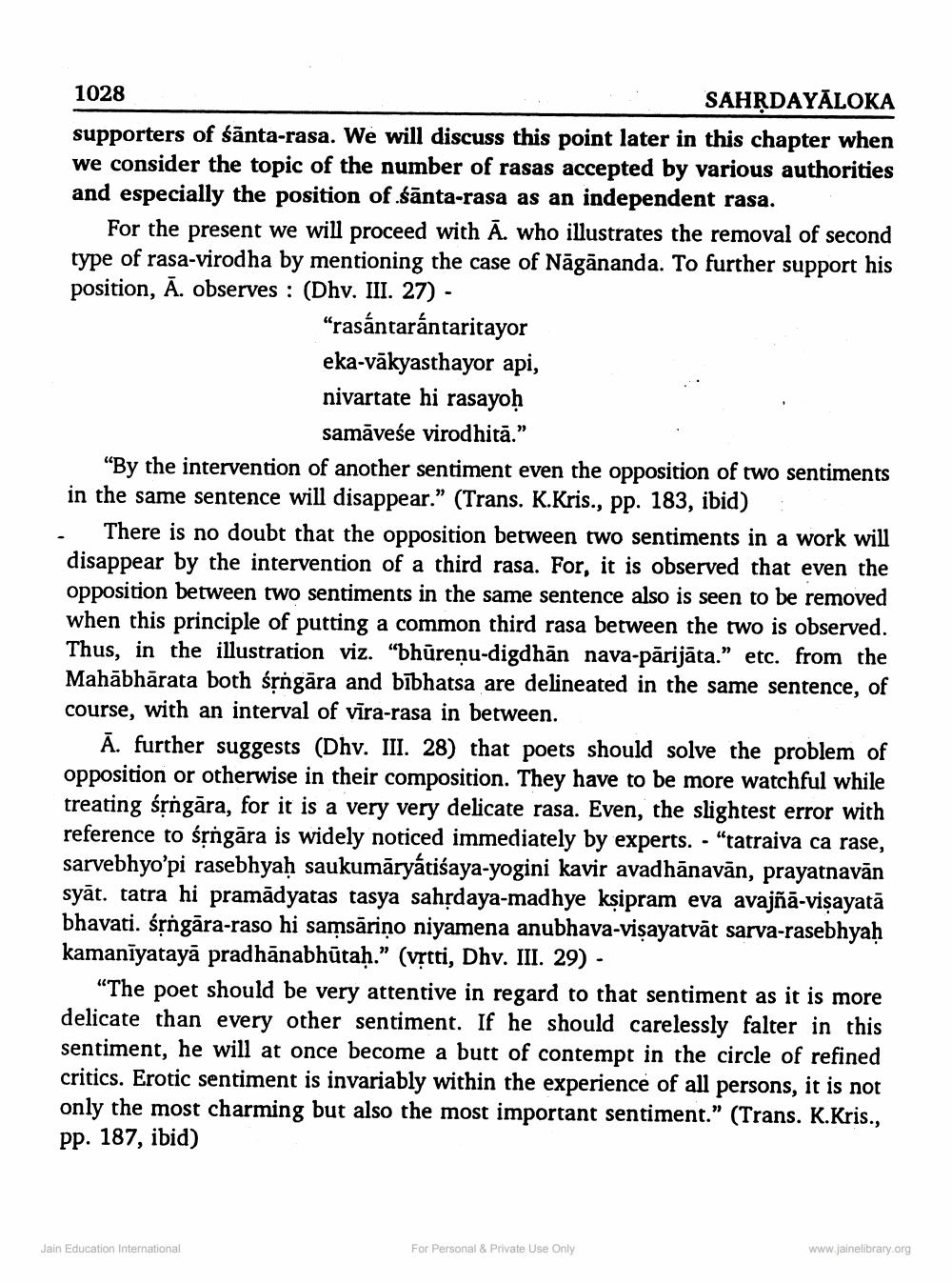________________
1028
SAHRDAYĀLOKA supporters of śānta-rasa. We will discuss this point later in this chapter when we consider the topic of the number of rasas accepted by various authorities and especially the position of śānta-rasa as an independent rasa.
For the present we will proceed with Ā. who illustrates the removal of second type of rasa-virodha by mentioning the case of Nāgānanda. To further support his position, A. observes : (Dhv. III. 27) -
“rasántarántaritayor eka-vākyasthayor api, nivartate hi rasayoḥ
samāvese virodhitā.” "By the intervention of another sentiment even the opposition of two sentiments in the same sentence will disappear.” (Trans. K.Kris., pp. 183, ibid) . There is no doubt that the opposition between two sentiments in a work will disappear by the intervention of a third rasa. For, it is observed that even the opposition between two sentiments in the same sentence also is seen to be removed when this principle of putting a common third rasa between the two is observed. Thus, in the illustration viz. "bhūrenu-digdhān nava-pārijāta." etc. from the Mahābhārata both śrngära and bībhatsa are delineated in the same sentence, of course, with an interval of vīra-rasa in between.
Ā. further suggests (Dhv. III. 28) that poets should solve the problem of opposition or otherwise in their composition. They have to be more watchful while treating śrngāra, for it is a very very delicate rasa. Even, the slightest error with reference to śrngāra is widely noticed immediately by experts. - "tatraiva ca rase, sarvebhyo’pi rasebhyaḥ saukumāryātiśaya-yogini kavir avadhānavān, prayatnavān syāt. tatra hi pramādyatas tasya sahşdaya-madhye kşipram eva avajñā-visayatā bhavati. śrngāra-raso hi samsārino niyamena anubhava-visayarvāt sarva-rasebhyah kamanīyatayā pradhānabhūtaḥ.” (vrtci, Dhv. III. 29) -
"The poet should be very attentive in regard to that sentiment as it is more delicate than every other sentiment. If he should carelessly falter in this sentiment, he will at once become a butt of contempt in the circle of refined critics. Erotic sentiment is invariably within the experience of all persons, it is not only the most charming but also the most important sentiment." (Trans. K.Kris., pp. 187, ibid)
For Personal & Private Use Only
Jain Education International
www.jainelibrary.org




